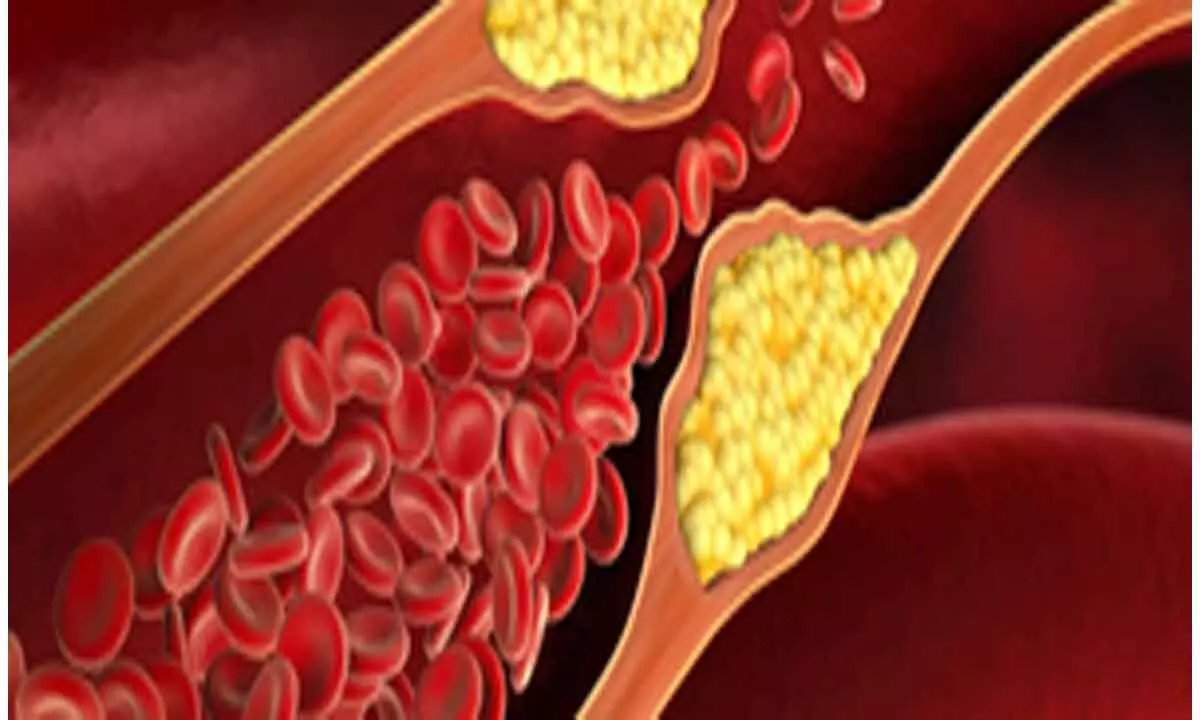How high cholesterol, microplastics are contributing to rising heart diseases
Share :

High cholesterol and microplastics are emerging as extremely dangerous risk factors for cardiovascular diseases, like heart attack and stroke, said experts on Saturday.
New Delhi : High cholesterol and microplastics are emerging as extremely dangerous risk factors for cardiovascular diseases, like heart attack and stroke, said experts on Saturday.
While cholesterol has traditionally been linked to an older population, recent years have shown a marked increase in cholesterol among youngsters.
This silent health concern often goes unnoticed, as high cholesterol typically does not show clear symptoms until serious damage has been done.
Speaking to to IANS Dr. Preeti Gupta, Professor of Cardiology at Safdarjung Hospital, Delhi said that early screenings, and keeping cholesterol and LDL-C levels (bad cholesterol) in check, can make a big difference.
Regular lipid profile testing and staying on top of your health can help catch any warning signs before they become serious problems.
“Elevated LDL-C levels are a significant contributor to coronary artery disease, which can lead to heart attacks and strokes. Monitoring and managing these levels through lifestyle changes and medication, if necessary, are key to preventing heart disease,” Gupta said.
“For people with comorbidities like diabetes or hypertension, the lipid profile becomes even more crucial, as they are at higher risk of developing heart issues,” she added.
According to recent guidelines from the Cardiological Society of India, LDL-C levels should be monitored regularly to ensure they stay within optimal ranges, particularly in high-risk individuals.
The lipid profile is one of the most important tests for assessing cardiovascular risk, as it provides a detailed view of cholesterol levels, including LDL-C (bad cholesterol), HDL-C (good cholesterol), and triglycerides.
Gupta recommended “starting the test at age 18 and to repeat every 4-6 years unless risk factors suggest more frequent testing”.
Dr Vidya Suratkal, Cardiologist, Lilavati Hospital Mumbai, told IANS said that "high cholesterol levels in youngsters aged 19-24 can cause a 50 per cent spike in heart disease risk during middle age (35-50)".
"About 7 out of 10 youngsters visiting me are having high cholesterol levels," he added.
The experts cited obesity, smoking, family history, genetics, thyroid problems, unhealthy diet, high blood pressure, sedentary lifestyles, and alcohol as the major risk factors for elevated cholesterol levels, which are putting the young hearts in danger.
Dr Sandeep Banerjee, Pathologist, Apollo Diagnostic Mumbai advised the youth “to do the lipid profile test every 8-9 months as recommended by the doctor and adhere to a well-balanced lifestyle that includes eating a nutritious diet, exercising, and sleeping well”.
Meanwhile, the experts noted that microplastics in the bloodstream are also emerging as a hidden link to cardiovascular disorders.
Microplastics are tiny plastic particles less than five millimetres in size and are ubiquitously found in the environment and have infiltrated every part of human lives.
From oceans and soils to the food people eat and the water they drink, they have permeated the very core of the ecosystem.
Recent research reveals a concerning link between microplastics and human health, especially regarding their impact on the bloodstream, heart disease, and even neurological disorders.
"Once microplastics enter the bloodstream, they can trigger an immune response, leading to persistent inflammation. This chronic inflammation has the potential to disrupt normal bodily functions, and over time, is strongly associated with a range of serious health issues, including cardiovascular diseases and neurological disorders,” Dr. Praveen Gupta, Principal Director & Chief of Neurology, Fortis Hospital, told IANS.
The long-term impact of microplastic exposure is becoming a critical concern for public health.
